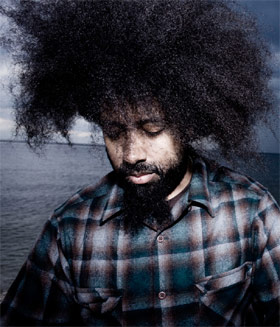 I spoke with musician/comedian Reggie Watts the week before his Brisbane Powerhouse show on May 23. For FourThousand, where a condensed version of this interview appeared, I wrote that “you should expect elements of beatboxing, poetry, live vocal looping and physical theatre among a highly improvised show that’s won Watts fans across the world.”
I spoke with musician/comedian Reggie Watts the week before his Brisbane Powerhouse show on May 23. For FourThousand, where a condensed version of this interview appeared, I wrote that “you should expect elements of beatboxing, poetry, live vocal looping and physical theatre among a highly improvised show that’s won Watts fans across the world.”
In my review for Rave Magazine, I wrote that “Watts’ absurd humour is most potent when operating on a seeming stream-of-consciousness: his finely-tuned comedic mind happily deadpans rapidly-fired high-brow concepts and phrases, much to our amusement.”
To get an idea of what Watts is all about, watch this video. Note that our conversation is directly transcribed, with little editing. Let me know how that works out. It’s also my first attempt at aping Wooooo Magazine‘s interview style.
R: Check 1-2! Hi!
A: Hello!
R: Hey, whasuuuup?
A: Hey Reggie, this is Andrew!
R: [robot voice] How are you doing, Andrew?
A: I’m good dude, how are you?
R: [normal voice] I’m doing alright.
A: What kind of mood are you in?
R: Well, I don’t know. I was just showing my friend some things on the computer, and some effects pedals. So I guess I’m in a good mood.
A: I’ve got two sets of questions for you, so it’s up to you to choose which one you want.
R: Okay.
A: I’ve got the serious, or the stupid questions.
R: Serious or stupid questions. Hmm. That’s a hard one. I guess, maybe.. the stupid ones?
A: Okay, we can try that.
R: Depends on what ‘stupid’ means.
A: Well, these are just random questions that I’m going to throw at you, to see how you respond.
R: Okay, let’s do that. Sounds like fun.
 A: Do you have a power animal?
A: Do you have a power animal?
R: Do I have a power animal?
A: Yeah. An animal you think of in tough times, to get you through.
R: I usually think of… wolves.
A: A wolf?
R: Yeah. My power wolf.
A: That’s cool. Mine’s a dolphin.
R: Oh, really? Dolphins are awesome!
A: Yeah! They remind me of freedom, and I can just escape to that world and pretend I’m swimming in the ocean with my dolphin-friends.
R: And they’re intelligent.
A: Yeah, exactly! And I’ve heard they really like sex.
R: They do like sex. They’re totally.. they’re awesome. They’re the closest to ‘us’ in the sea.
A: Okay. How do you feel about baked beans?
R: When I grew up, baked beans were essentially something you associate with poor families. You know, if you were poor, you got baked beans. So when I went to London for the first time and had the proper English breakfast, which includes baked beans, and I was like “whaaat? Why am I eating poor people food?” Which is a horrible thing to think, but that was just my programming. Now I really like them! It totally makes sense to me. I actually enjoy baked beans. It’s really weird.
A: It’s a bit of a staple here in Australia as well. It’s not really associated with poor people, it’s just like a breakfast snack.
R: Yeah, exactly! It’s not a poor people food at all here. It’s normal people food.
A: What is your ideal breakfast?
R: My ideal breakfast is probably the Swedish breakfast. It has sour milk, which you can’t really find anywhere except Scandinavia. And muesli. And toast, with fish. And you pull herbs right off of a little bush and have that with the fish.
A: Whoa.
R: Yeah, it’s pretty weird. But it’s a great breakfast and I always feel really good after eating it.
A: You seem to prefer the cold breakfast over the hot breakfast.
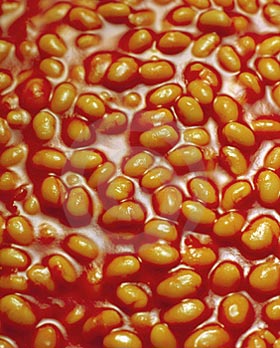 R: It depends. Sometimes I feel like eggy-weggs. But for me, cold breakfasts are a little more efficient than a hot breakfast. Those are more involved. The hot breakfast is something you sit down with and really HAVE the breakfast. Whereas if it’s muesli and soy milk, or yoghurt, you can just take it with you and eat it. You don’t feel like an asshole.
R: It depends. Sometimes I feel like eggy-weggs. But for me, cold breakfasts are a little more efficient than a hot breakfast. Those are more involved. The hot breakfast is something you sit down with and really HAVE the breakfast. Whereas if it’s muesli and soy milk, or yoghurt, you can just take it with you and eat it. You don’t feel like an asshole.
A: Yeah, you can eat it in front of the computer, or whatever you want to do.
R: Exactly!
A: Whereas the hot breakfast, I associate that with, say, reading a newspaper.
R: Yeah, you take your time. When you have time for breakfast – have a hot breakfast!
A: Do you read newspapers?
R: I don’t. I read all my news online.
A: Me too. Did you ever read newspapers?
R: I never did. I tried to, but I couldn’t get into it. I know people who just love to crack open that newspaper and smell the ink, but I just found it unruly. Every time I open up a newspaper, I just feel like doing a bit with it, like a gag. The sound of rustling paper – I just want to keep doing that perpetually, and never find whatever I’m looking for, and keep folding it endlessly. To me, the newspaper is more of a ploy than an actual informational tool.
A: Would you ever date a blind girl?
R: I would date a blind girl. Yeah. Why not?
A: If she was a total babe.
R: Absolutely. Yeah!
A: What about a deaf girl?
R: A deaf girl would be great, too!
A: Do you think you could accurately portray your personality to a deaf girl?
R: Absolutely, because a deaf girl can see. If she was deaf AND blind, then you’d have a little bit of a problem. But I’d probably hug her a lot, and she’d probably really respond to that.
A: Yeah, she’d be really into touching. The tactile.
R: Yeah. I guess I’d just have to find a new way to relate to someone. But human beings are pretty adaptable.
A: Right on. If you knew you were going to die tomorrow, what would you do today?
R: If I knew I was going to die tomorrow.. (speaks slowly) I would probably get.. like, a bunch of heroin, and do that, and then just talk to people on beaches, and have girls come over. Or something like that. (laughs) And have someone record it all, and then have someone remix it later.
A: I took a look at your Vimeo page, and I saw that you’re getting into uploading videos on there.
R: Yeah.
A: Are you recording anything while you’re here in Australia?
R: I might. Sometimes when I travel I feel like recording a lot. But so far I haven’t really felt compelled. I’ve taken some little videos with my phone that I might upload at some point. Sometimes I get really addicted to uploading. But I’m better at uploading photos, I definitely put photos up all the time. Videos are a little bit more involved. They take longer, it’s not as fun. Whereas a photo I can take it and upload immediately. And a video is just like (groans) “ughhhh”.
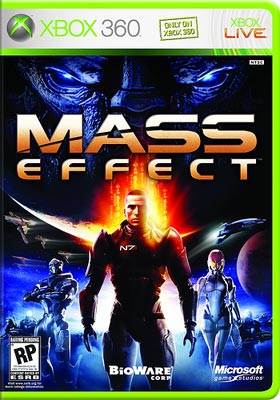 A: Do you play video games?
A: Do you play video games?
R: I do like video games. But I don’t have a lot of time to play them. What usually ends up happening is that I find a video game and I just play it straight, for like a week, and then I’m good for a year. The last game I played – which they’re making another version of, I can’t believe it – it was an amazing, amazing game called Mass Effect, for the Xbox. If you like science fiction, especially 70s-style science fiction.. it’s futuristic, but it has a kind of Eno-vangelist sci-fi soundtrack. The plot is heavy, and deep, and the characters are amazing. It’s a really incredible game.
A: So you prefer sitting in front of a TV to play games, rather than handhelds?
R: Handheld’s alright. I have a DS. It’s good for travelling, but I would prefer to be immersed in a projected game. I’m going to get some HD head-mounted display goggles, and hook the video game console up to that so I can be really immersed. Just lay back on the bed and go for it!
A: God damn, they make those?
R: Yeah, they’re actually pretty cheap! You can get some high-def ones for $800 American dollars. Pretty fuckin’ cheap.
A: So you’ve tried it out?
R: Yeah. They’re great, they’re really light-weight. You wear them, and you have the stereo vision because there’s a separate monitor for each eye. It’s great.
A: That’s awesome. Do you play poker?
R: I don’t. I don’t like poker.
A: You’ve tried to play?
R: I’ve tried to, but it’s not fun. When everyone’s betting, it just seems overly, unnecessarily complicated. I would play poker just as long as I could make fun of poker the whole time. If I was allowed to, if people weren’t taking it too seriously. It’s such a silly game. Everyone’s monitoring each other. I understand that people are into the strategy of it, but at the same time, it’s just ridiculous.
A: Yeah. It seems a pretty funny thing to devote your life to, being a professional poker player and learning how to watch other people play.
R: Yeah. There’s an art to anything, but when I look at poker, I just think (groans) “Oh god.”
A: “You guys are lame.”
R: Yeah! “You guys suck!” (laughs) I don’t think that, it’s just funny to think about what people take seriously.
A: Do you think people take you seriously?
R: Probably not! I think they take me seriously in that they believe that I exist. But.. some people do. It depends on the context. When I have a conversation with someone, it’s pretty real, but when I give interviews and I’m in a weird mood, I might just fabricate a lot of things. But let the interviewers in on it. Just because I find that amusing.
A: If you couldn’t rock an afro, which hairstyle would you have?
R: I would probably do a mohawk. Some kind of weird, shaved-on-one side, spiky-on-the-other future punk-rock look.
A: A giant mohawk? Like three feet high?
R: Not quite a straight mohawk. It’d have to be something a little weird.
A: Is there such thing as a free lunch?
R: Absolutely. I have them all the time! (laughs)
A: Who is your favourite Looney Tunes character?
 R: That’s a hard one. I don’t know if I’d want to be him, but the Tasmanian Devil is pretty hilarious. I guess the most.. intellectual of the characters would be Bugs Bunny, so I’m gonna say that even though it’s pretty generic. He was the most balanced, and in control. He tricked people. I like that about him.
R: That’s a hard one. I don’t know if I’d want to be him, but the Tasmanian Devil is pretty hilarious. I guess the most.. intellectual of the characters would be Bugs Bunny, so I’m gonna say that even though it’s pretty generic. He was the most balanced, and in control. He tricked people. I like that about him.
A: Do you think that the bunny or the devil could potentially be your back-up power animals?
R: I think that the devil could definitely be a back-up animal (laughs) He’s kind of like Animal from The Muppets. Basically, when he stops, he’s Animal, and then he just turns back into a brown tornado.
A: Do you think he’s schizophrenic?
R: I don’t think he’s schizophrenic. He’s just got a lot of energy. And he’s got a caveman mentality.
A: How’s your hotel?
R: It’s an awesome hotel! It’s very civilised. It has a laundry machine, and a dryer, a microwave, a little kitchen, and a nice shower.
A: Is Trent [Barton, Zero Hour Collective] taking care of you?
R: Oh yes. He’s a professional.
A: So he’s not letting you wander out of his sight, so you can go and explore Sydney’s slums?
R: No, not yet. I’m sure that will come in the future. As they all get more successful, I’ll get worse living conditions.
A: You’re here for six weeks, aren’t you?
R: Yeah, I leave on the 11th or 12th of June.
A: You’re involved in the Sydney Festival, right?
R: Yeah, Vivid Sydney. It’s kind of confusing, because there’s three things going on: Vivid Sydney, Smart Light Festival, and Luminous, the Eno festival. It’s a little confusing. I think next year, they’re gonna have to work on their branding. I get what they’re doing artistically, because I spoke to the directors recently, but I shouldn’t have to think about it. But whatever, it’s going to be a great festival. Their intentions are pretty humanitarian.
A: Sweet. Do you Google yourself?
R: I do, all the time. I use Google Alerts.
A: Oh really? That was my next question. So you’re down with the technology.
R: Yeah, man.
A: You know what’s being said about you.
R: Yeah. I’ve always loved communications technology. I’ve been rocking smart-phones since the first smart-phone. I’ve been using organisers since the concept of organisers came out. Commodore 64s, scientific calculators.. I’ve always had some kind of a computer or storage device, and once networking became online, then I was totally down with that.
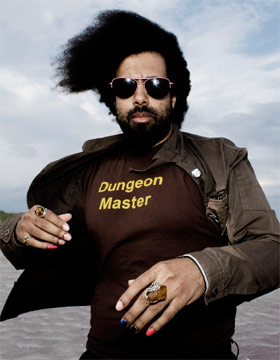 A: So when this interview is published online, you’ll be the first to know about it through Google Alerts.
A: So when this interview is published online, you’ll be the first to know about it through Google Alerts.
R: Yes! It’s fascinating. It’s a good thing, because there’s so much stuff out there. I think everyone should put an alert out for their name.
A: When was the last time you cut yourself while shaving?
R: Man, the last time I shaved was a long time ago! I would say, maybe, seven or eight months ago.
A: Did it hurt?
R: Sometimes it hurts, sometimes it doesn’t, you know? (puts on British accent) If it’s a light graze, then it doesn’t hurt as much. (laughs) I don’t know. Probably not. No. I’m going to say no – okay, yes, it does, it hurts. Sorry. (laughs)
A: Do you believe masturbation is a sin?
R: Well, I grew up Catholic, so probably at first, I did. But not for long, it didn’t really stop me as a kid. I was pretty.. haywire, as they say. But I don’t think so. I think it’s necessary! (laughs)
A: I just can’t get how those devoutly religious people do it. Or don’t do it, in this case.
R: It’s just about self-control. That’s all. Why else would someone deny something that happens naturally? It’s like if you wanted to start a religion and make up arbitrary things that people can’t do. Like, “you can’t pick up coins from the ground”, or “you have to avoid low-hanging branches”. Things of that nature, and then people accept it – “yes, of course!” – and then you give these stupid reasons for why you shouldn’t. And some people might start to believe that. It’s just the power of belief that gives the strength to limitations.
A: Alright, I’m done with the stupid questions, so I might move onto some more serious ones now.
R: Alright.
A: Is that okay?
R: Yup.
A: Okay. At what time of day are you most productive?
R: Sometimes it’s late afternoon, sometimes it’s late at night. So if I had to give you an hour, it’d be 9pm.
A: Do you stay up late?
R: Yeah, I usually go to bed at around 3am.
A: Cool. Me too.
R: Yeah. It’s the best time.
A: Are you a procrastinator?
R: Definitely.
A: How do you deal with it?
R: I hate it, sometimes. I just end up getting in trouble, being late, or not completing something.
A: Have you gotten better?
R: Yeah. It’s an ongoing battle with myself. The best way to deal with it is to just be on time. Keeping a timely manner is the best way to avoid it, but it’s hard for me, because I like waiting until the last minute. It’s just my personality.
A: Did you go to university?
R: I went to Cornish College Of The Arts in Seattle, Washington, for about two and a half years. I studied Jazz Voice.
A: Did you leave your assignments until the last day?
R: Of course. Always. Sometimes I didn’t even do ’em.
A: You procrastinated so hard that you didn’t hand it in.
R: Exactly. Which then moves beyond procrastination..
A: Into, what would you call it.. failure?
R: Yes, failure. (laughs)
A: When someone meets you for the first time, how do you describe yourself?
R: (pauses)
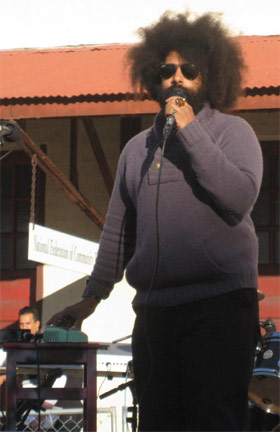 A: Or do you just assume that everyone knows who you are, instantly, because you’re a mega-celebrity?
A: Or do you just assume that everyone knows who you are, instantly, because you’re a mega-celebrity?
R: No, no! That would be horrible to constantly assume that. “Don’t you know who I am?!” I don’t know, I guess I call myself an abstract musical comedian.
A: So when you tell people you’re a comedian, do they ask you to tell them a joke?
R: Sometimes, yeah.
A: Does it shit you to tears?
R: Not really. I either tell them that I don’t do jokes, or I just make up a really stupid joke that doesn’t make any sense. And they’ll be like “wow, I shouldn’t have asked that.”
A: “This guy’s not funny at all!”
R: “I don’t get it, how does he make a living?”
A: I was watching the promo video on the Zero Hour site, where you explain that you investigate the absurd side of comedy. Does that come easily to you?
R: I think so. It’s the way I’ve always seen life. I’ve always seen things as silly. Goofy. Even death, at times, can be goofy.
A: I watched that CollegeHumor video of yours, which deals with a pretty humorous topic in a pretty serious way. Or at least it appears to be serious. Would you consider that video to be absurdist humour too, because it takes a non-serious topic into a serious context?
R: Absolutely, yeah. It’s all about context and contrast. You take something serious and you expose how it’s actually absurd if you look at it through a different lens.
A: From what I’ve seen, your act uses a lot of swearing. Does that come easily, too?
R: I like swearing, but I like using it because it really gets the idea across. Or if you overuse it, then it becomes ridiculous. The audience wonders when it’s going to stop. It’s a fun thing to disarm people with, or to shock them into understanding that it’s not shocking. It’s just stupid.
A: People get offended by certain words, and then if you overuse them to the point of absurdity, that says to people, “well, they’re just words, why are you getting so pissed off?”
R: Yeah, you take the power away from it. And then sometimes people get angry because of that! “Oh, now we can’t complain about it, because it doesn’t mean anything!” Well, I’m sorry!
A: “I’m sorry for being so clever!”
R: Yeah. “You should have thought of it first!”
A: How did the CollegeHumor [“What About Blowjobs?“] collaboration come about?
R: CollegeHumor was co-founded by my former roommate, Jacob Lodwick. I met those guys through him. They’d come to my shows, and we’d explore the idea of doing something together. “What About Blowjobs” came about as a result of that. It was good!
A: It was good. Do you ever experience gear failure on stage?
R: Sometimes, yeah. But it’s just an opportunity to do something different, until it’s resolved.
A: Because you’re all about spontaneous performance: “no two shows are the same”.
R: Absolutely.
A: Do you ever sabotage your own gear to put yourself at a disadvantage?
R: (laughs) It’s kind of hard to do that. “Oh, I know who did that. I know what the problem is!” But no, it happens on occasion. It’s fine, I like it.
A: When you go and see a show, what do you like to see?
R: I like to see anything that’s really good. It can be serious, humorous, weird; dance, poetry, anything really, as long as it’s coming from a place of mastery. Of clear vision, or clear voice. That’s all that matters to me. Sometimes an idea isn’t fully developed, but it’s still great.
A: Is your show an attempt to capture that clear voice?
R: Kind of. The clear voice is the unclear voice in my show, but it’s a form of that, for sure. In my own way.
A: What’s awesome about touring the world?
R: Getting to know the world better.
A: What sucks about touring the world?
R: Not being able to stay healthy on the road, because you’re not living a consistent lifestyle.
 A: How do you deal with that?
A: How do you deal with that?
R: You don’t, you just try to do the best you can.
A: Suck it up!
R: Yeah, try to take a long vacation.
A: Okay, last question. What do you fear?
R: What do I feel?
A: Fear.
R: I guess I fear irrelevance, and dying from some stupid health condition.
A: In what kind of way do you want to die?
R: I don’t want to die at all, but I don’t know if that’s possible yet. (laughs) But along the way, I want to do the best to treat myself well, and limit the possibilities of death happening early.
A: Awesome, great outlook.
R: Thank you.
A: You’re up in Brisbane this week. The band supporting you are pretty kickass, you should check them out. They’re called Yeo & The Fresh Goods.
R: Oh, cool man. I’m definitely looking forward to it.
A: Thanks for your time, Reggie.
R: Thank you! Goodbye, sir.
Well, I hope that was mildly amusing. It was fun to do something different, right? More about Reggie at his site. He’s on Twitter, too.

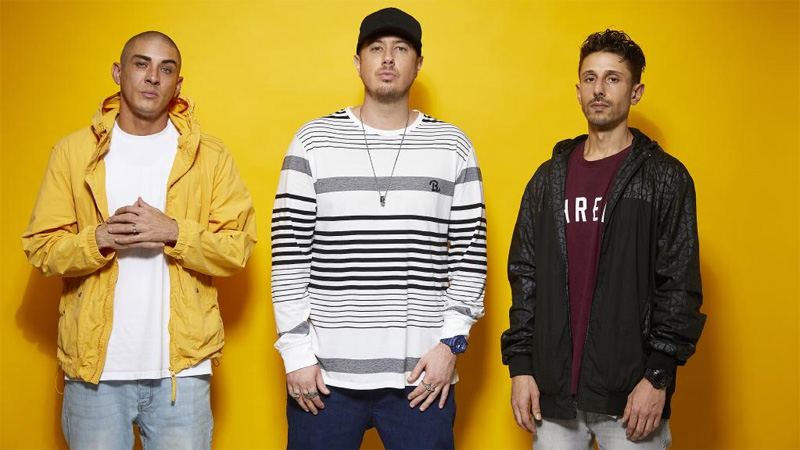
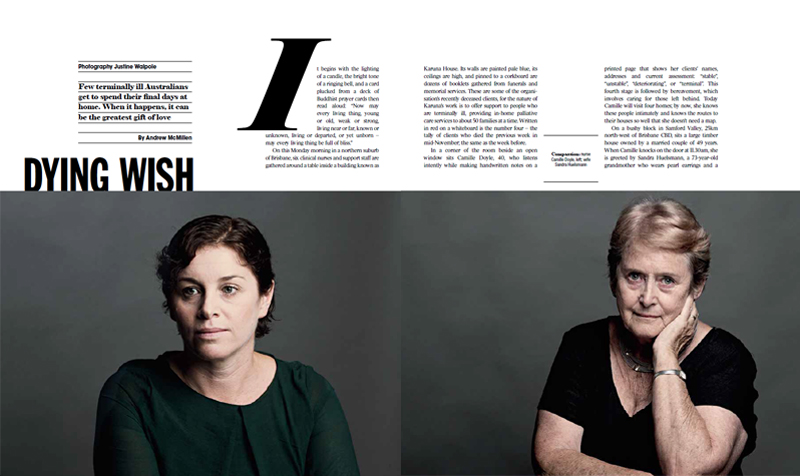
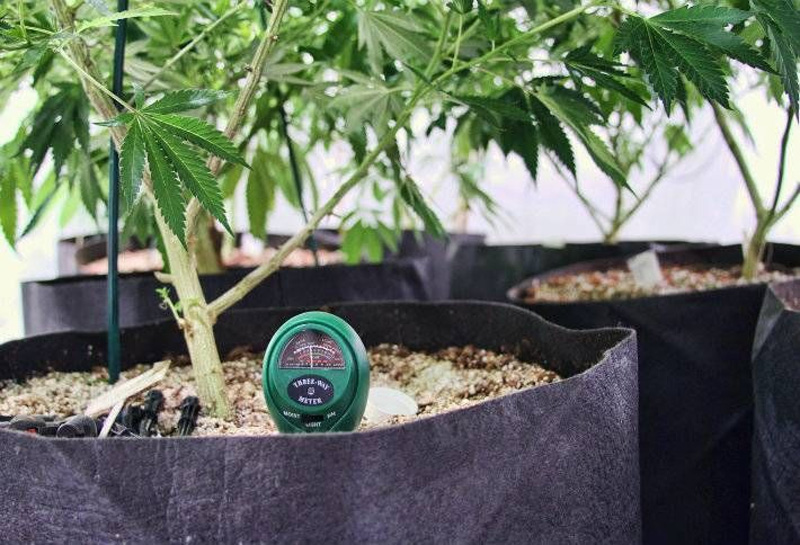

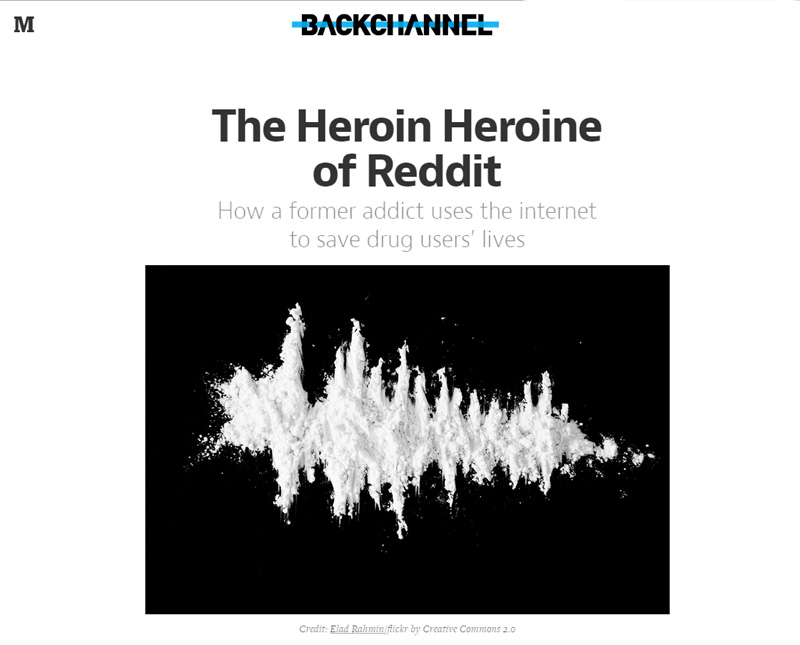
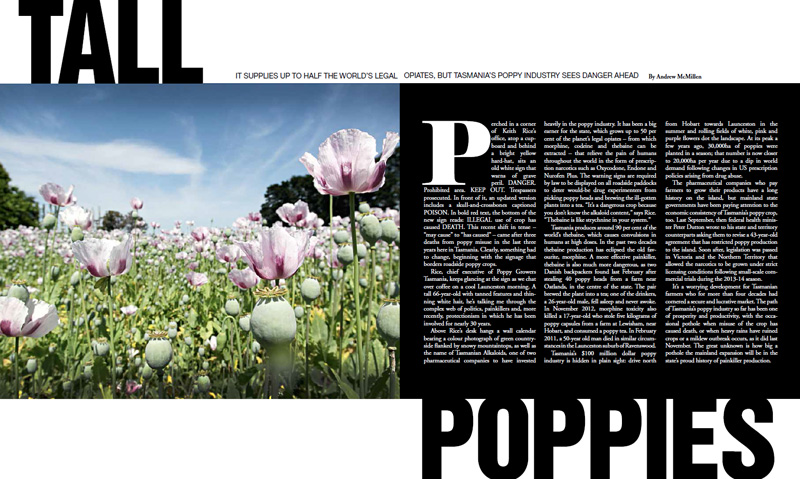
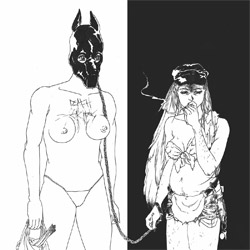 By combining the ethos and aesthetics of punk-rock and electronica with hip-hop, Californian trio Death Grips have established an entirely unique sound.
By combining the ethos and aesthetics of punk-rock and electronica with hip-hop, Californian trio Death Grips have established an entirely unique sound.
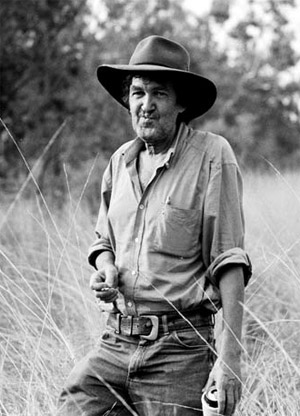 Hi Andrew,
Hi Andrew,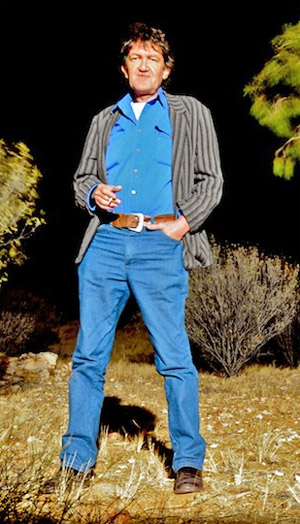
 I spoke with musician/comedian
I spoke with musician/comedian  A: Do you have a power animal?
A: Do you have a power animal? R: It depends. Sometimes I feel like eggy-weggs. But for me, cold breakfasts are a little more efficient than a hot breakfast. Those are more involved. The hot breakfast is something you sit down with and really HAVE the breakfast. Whereas if it’s muesli and soy milk, or yoghurt, you can just take it with you and eat it. You don’t feel like an asshole.
R: It depends. Sometimes I feel like eggy-weggs. But for me, cold breakfasts are a little more efficient than a hot breakfast. Those are more involved. The hot breakfast is something you sit down with and really HAVE the breakfast. Whereas if it’s muesli and soy milk, or yoghurt, you can just take it with you and eat it. You don’t feel like an asshole. A: Do you play video games?
A: Do you play video games? R: That’s a hard one. I don’t know if I’d want to be him, but the Tasmanian Devil is pretty hilarious. I guess the most.. intellectual of the characters would be Bugs Bunny, so I’m gonna say that even though it’s pretty generic. He was the most balanced, and in control. He tricked people. I like that about him.
R: That’s a hard one. I don’t know if I’d want to be him, but the Tasmanian Devil is pretty hilarious. I guess the most.. intellectual of the characters would be Bugs Bunny, so I’m gonna say that even though it’s pretty generic. He was the most balanced, and in control. He tricked people. I like that about him. A: So when this interview is published online, you’ll be the first to know about it through Google Alerts.
A: So when this interview is published online, you’ll be the first to know about it through Google Alerts. A: Or do you just assume that everyone knows who you are, instantly, because you’re a mega-celebrity?
A: Or do you just assume that everyone knows who you are, instantly, because you’re a mega-celebrity? A: How do you deal with that?
A: How do you deal with that?